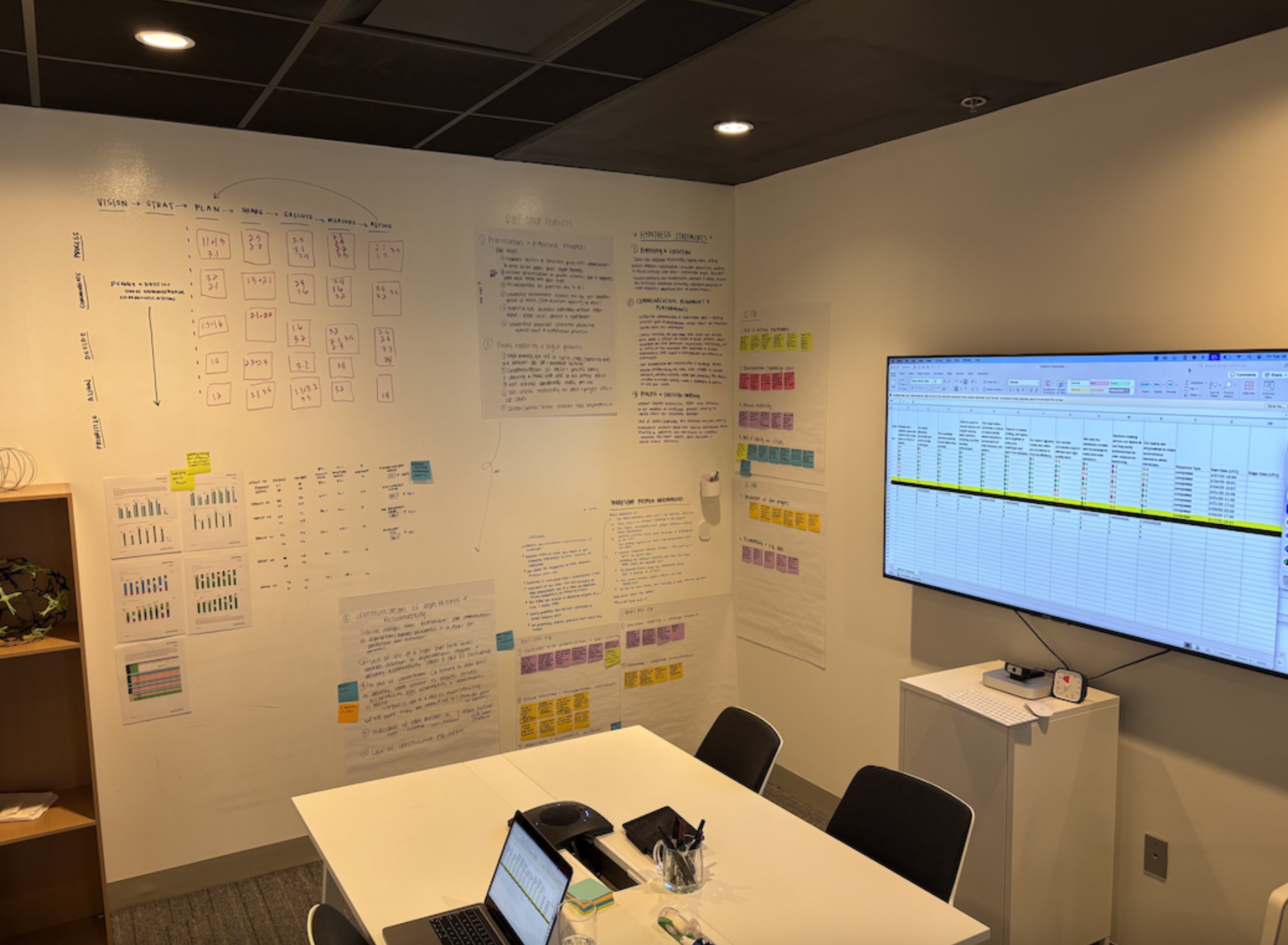
They take a technology-forward approach that allows them to bring greater value and more collaborative solutions to their clients. The entire team strives to deliver service that exceeds industry expectations, championing strong internal relationships rooted in mutual respect.
A core part of achieving this mission is McCownGordon's internal product team, whose efforts directly contribute to the company's leadership in the construction tech space.
McCownGordon's product team is a small, tight-knit group of highly skilled individuals who collaborate and communicate exceptionally well. However, they recognized that despite their strengths and successes, some challenges were limiting their maximum impact.
Three years prior to engaging us, McCownGordon had transitioned their team to their own version of Agile and brought in new team members. As they planned for the future in a tough economic climate, they recognized opportunities for improvement that many internal product teams face.
The entire team was feeling ready to take a good hard look at their product practice to overcome similar patterns that had grown frustrating over time. Like many high-performing product teams, they understood that regular process evaluation is just part of staying effective in a rapidly changing business landscape.
Product team members
Of the product team participated in the assessment
Of post-workshop accountability checks
Setting this intention at the beginning of the assessment allowed us to move purposefully through a series of discovery activities. Our methodology is designed to evaluate and enhance product team performance through a collaborative, data-driven approach. Rather than delivering generic advice, this engagement style provides real-world recommendations tailored specifically to McCownGordon's context.
We dove into discovery together with one-on-one interviews, comprehensive surveys, and live observation of team dynamics. A breakthrough came during our analysis of survey responses where multiple team members described these results as "really interesting" because they revealed patterns the team felt but couldn't previously articulate.
Perhaps the biggest aha moment was when we identified high-alignment/high-agreement areas where the team was genuinely united, high-alignment/low-agreement areas where everyone agreed on importance but varied on execution, and mixed-result areas that were prime candidates for deeper focus. This prevented time wasted debating things they actually already agreed on, while the real issues that need their attention go unaddressed.

Transform estimation capabilities from vague responses to reliable project timelines
Establish clear metrics to better demonstrate the value of the team's work
Shift from reactive work patterns to strategic service delivery with structured planning processes
Provide enterprise stakeholders with transparent visibility into contributions and capacity

The work done together gave their team permission to take a bold new direction! One where they could honor their mutual respect while asking hard questions and maintaining appropriate expectations with clearly understood roles. So what are the greatest areas of impact walking away?
The team began developing standardized service offerings with reliable time estimates, directly addressing their inability to provide definitive project timelines. They established concrete metrics to demonstrate their value exceeded their overhead costs, and implemented structured reporting methods that gave leadership visibility into team capabilities and capacity.
Because team members helped create the solutions rather than simply receiving recommendations, they showed genuine excitement about implementation. Which should help in making sure things stick.
Each improvement area included specific actions, timelines, and assigned team members. Crema's ongoing check-ins helped the team track toward agreed-upon goals while identifying obstacles and providing continued support to leadership.
Everyone left energized to continue pursuing innovation with the assurance that their improved methods will support enterprise needs at any step of McCownGordon's growth journey. And the Crema team still stays in touch on how things are going.